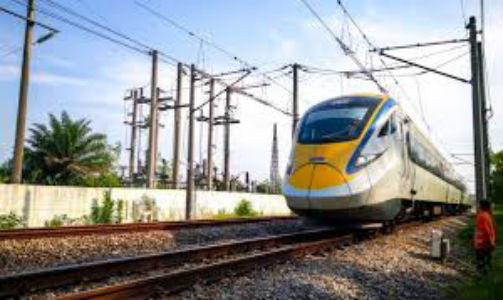Double tracking to cost RM40b

BT, March 11, 2013
Malaysia's electrified double track project (EDTP), meant to improve the passenger and cargo business, will cost some RM40 billion by the time the whole network is completed around 2020.
"The EDTP is an important development for Malaysia and is meant to benefit Keretapi Tanah Melayu Bhd and the public. The EDTP has created significant economic benefits for the country and new jobs," a government official told Business Times.
The official did not say whether the final estimated value takes into account cost overruns due to project delays.
The EDTP spans around 1,000km across Peninsular Malaysia from Padang Besar to Johor Baru. The tracks are electrified and equipped with a signalling and telecommunication system.
Since 1995, some RM9 billion has been invested in the EDTP.
These include around RM2 billion to build a 150km line between Rawang and Seremban in 1995 and RM650 million for the 7.5km Sentul-Batu Caves line, which was completed in 2010.
The Sentul-Batu Caves line cost 55 per cent more than the RM420 million bid agreed in 2003 as there were delays.
The 179km Rawang-Ipoh line, which was completed in 2007, cost about RM6 billion, which was more than the original budget of RM4.5 billion. The cost overrun occurred because it was poorly managed.
The ongoing stretches are the Seremban-Gemas line, which is being built by India's Ircon International Ltd involving 102km for around RM3.5 billion, and the Ipoh-Padang Besar line involving 329km which is being built by MMC-Gamuda JV. The RM12.9 billion Ipoh-Padang Besar line is to be completed by next year.
According to the Auditor-General's Report 2011, the cost for the Ipoh-Padang Besar line had increased by RM3.61 billion due to land acquisition and compensation for squatter relocation, among others.
The final link to the EDTP is from Gemas to Johor Baru, covering 195km. This line, was has not been awarded, will cost RM8 billion to 10 billion.
"Rail transport currently has a market share of just three per cent compared to road transport, which is almost 90 per cent. This is a far cry compared with developed countries, where the rail share is about 30 per cent to 35 per cent.
"Rail is becoming an important mode of transport and that is why the government is emphasising on new developments, like the high-speed rail and mass rapid transit," the official said.
Back